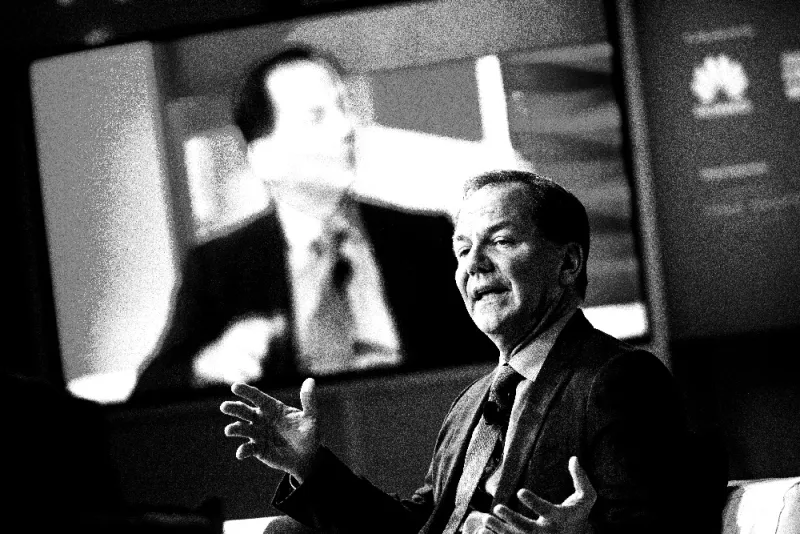The rich are getting worried.
Billionaire hedge fund manager Paul Tudor Jones; Robert Shiller, the Yale University professor who is a co-winner of the Nobel Prize in economic sciences; and DoubleLine Capital’s deputy chief investment officer Jeffrey Sherman all pointed to growing concerns over wealth disparity during sessions this week at the Inside ETFs conference in Hollywood, Florida.
Shiller remarked on stage Tuesday that people at this year's World Economic Forum in Davos, Switzerland were “spooked by rising populism” and “machines replacing jobs.” He found the Davos crowd “a bit beleaguered” that people don't admire rich chief executive officers as much as they used to.
As the wealth divide widens — with CEOs making more than ever compared to their workers — the risk of revolution is also increasing, according to Jones, who is the founder of hedge fund firm Tudor Investment Corp. The high and increasing level of income inequality is not sustainable, he said Monday at the event.
That's unsettling for the hedge fund manager, who said he hasn't seen such a social divide since the 1960s or 70s.
“It’s a scary time for someone who grew up and prospered” in the private sector, Jones said. He wants the private sector to work on solving divisive issues and says his research has found that companies with good behavior tend to perform better.
He sought to make his case through JUST Capital, the nonprofit firm that he co-founded to align Wall Street’s priorities with those of the public. JUST Capital ranks companies on the issues most important to Americans, including how well workers are paid and treated.
Jones said he is personally invested in the exchange-traded fund that's tied to the performance of JUST Capital's JULCD index, which tracks large U.S. companies based on the firm's annual ranking of just business behavior. The index has outperformed the Russell 1000 by 3.4 percentage points since its inception on November 30, 2016, he said.
The Tudor Investment founder isn't the sole hedge fund manager speaking out about wealth disparity as a threat to U.S. stability. Bridgewater Associates founder Ray Dalio has expressed similar fears, writing in an April LinkedIn blog post that today's geopolitical environment is analogous to the 1930s, in part because of the election of populist leaders as well as “large wealth gaps.”
[II Deep Dive: Larry Fink’s Letter, for Real This Time]
A lot of people feel “disenfranchised” or “left out,” said Sherman, DoubleLine Capital’s deputy CIO, while sharing the stage with Shiller at the ETF conference on Tuesday.
Investors may be disappointed by their gains over the next decade.
“U.S. stock market returns are likely to be lower than usual over the next 10 years,” Shiller said.
The long U.S. economic expansion and 10-year bull market have many worried that a turning point must be near. By some accounts, it’s the longest bull market ever, he said. “It can’t just keep going up and up.”
Many of Shiller's comments Tuesday focused on “narratives” tied to the economy and markets. While “economists don’t like to talk about them because they’re too plebeian,” narratives can be powerful, and more memorable than numbers, he said.
He mentioned the crowds that surround New York’s iconic statue of a bull, proudly taking selfies in front of what represents the world's strongest stock market. Shiller suggested the bull has eclipsed the Statue of Liberty in popularity — but that narrative could change when the market goes down.
He also pointed to U.S. congresswoman Alexandria Ocasio-Cortez, who has proposed a 70 percent marginal tax rate on incomes over $10 million, as an unexpected viral force. “Where did she come from?” Shiller said.
DoubleLine’s Sherman expects the tumultuous political environment will be nothing compared to what lies ahead in the next U.S. presidential election.
“If you think it’s crazy now,” he said, “just strap in!”







